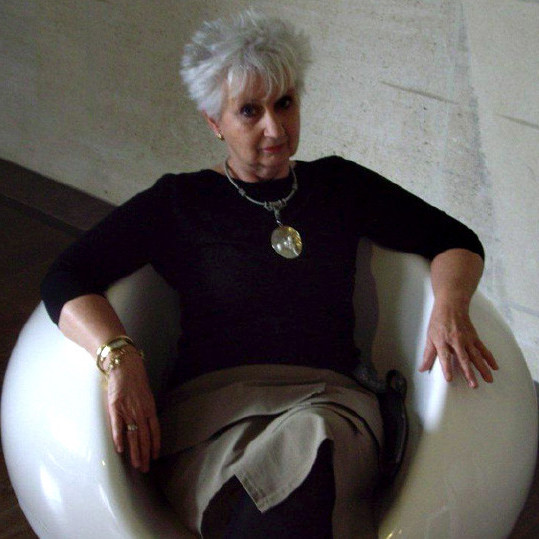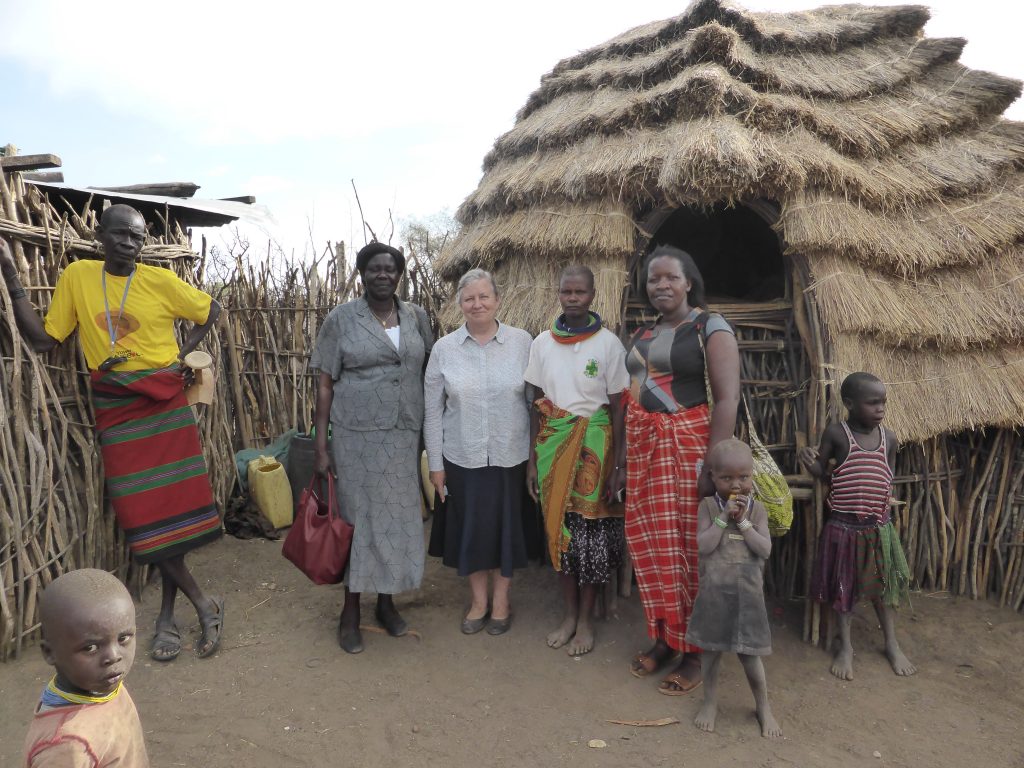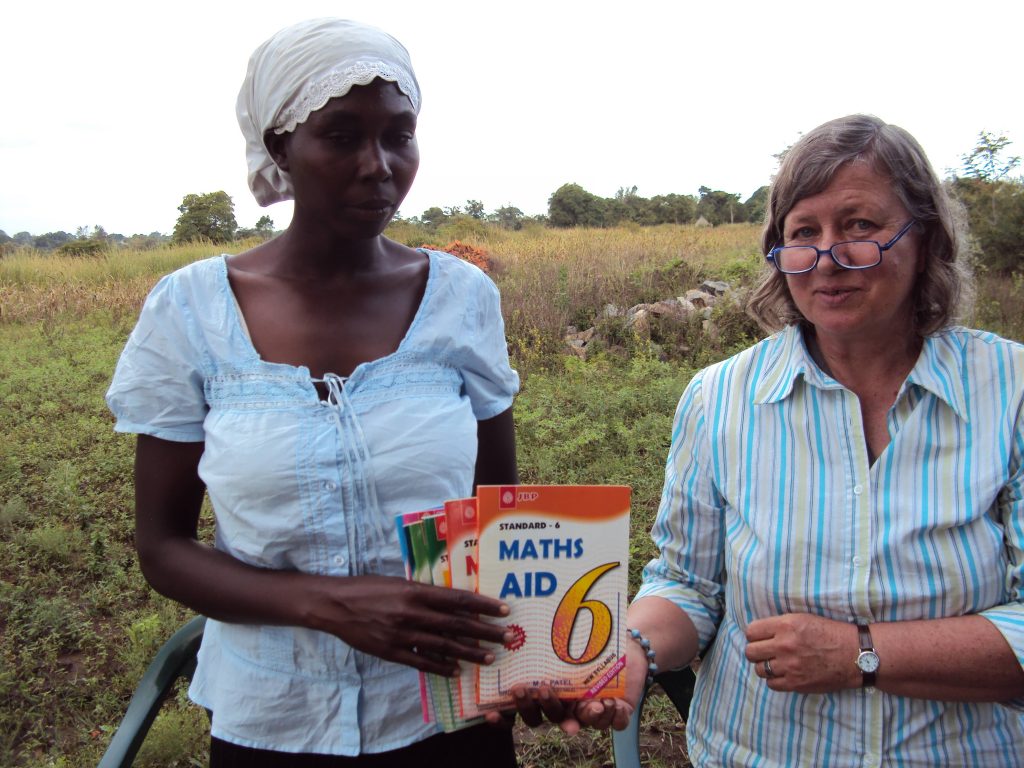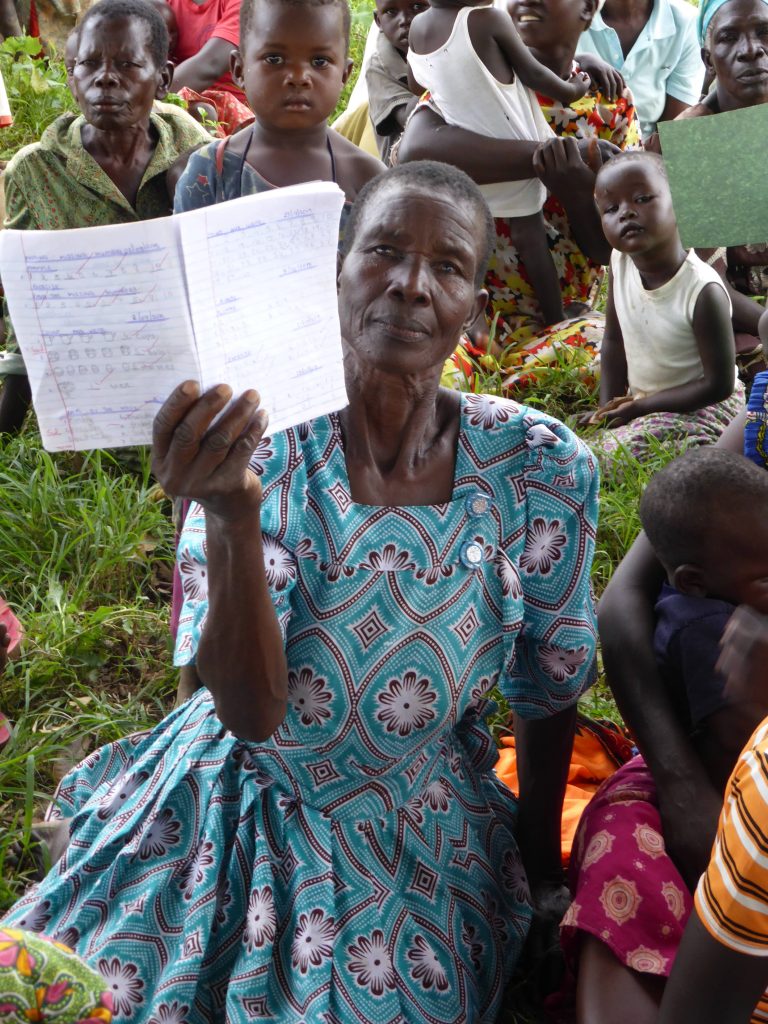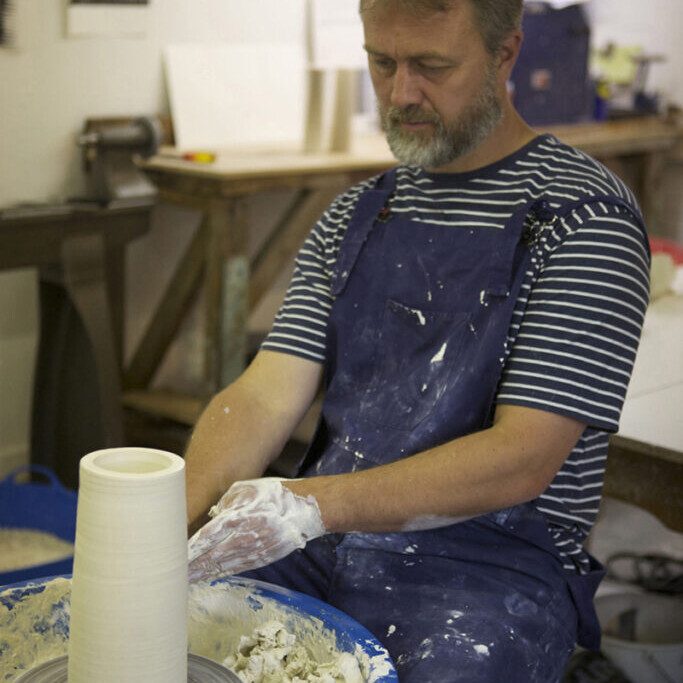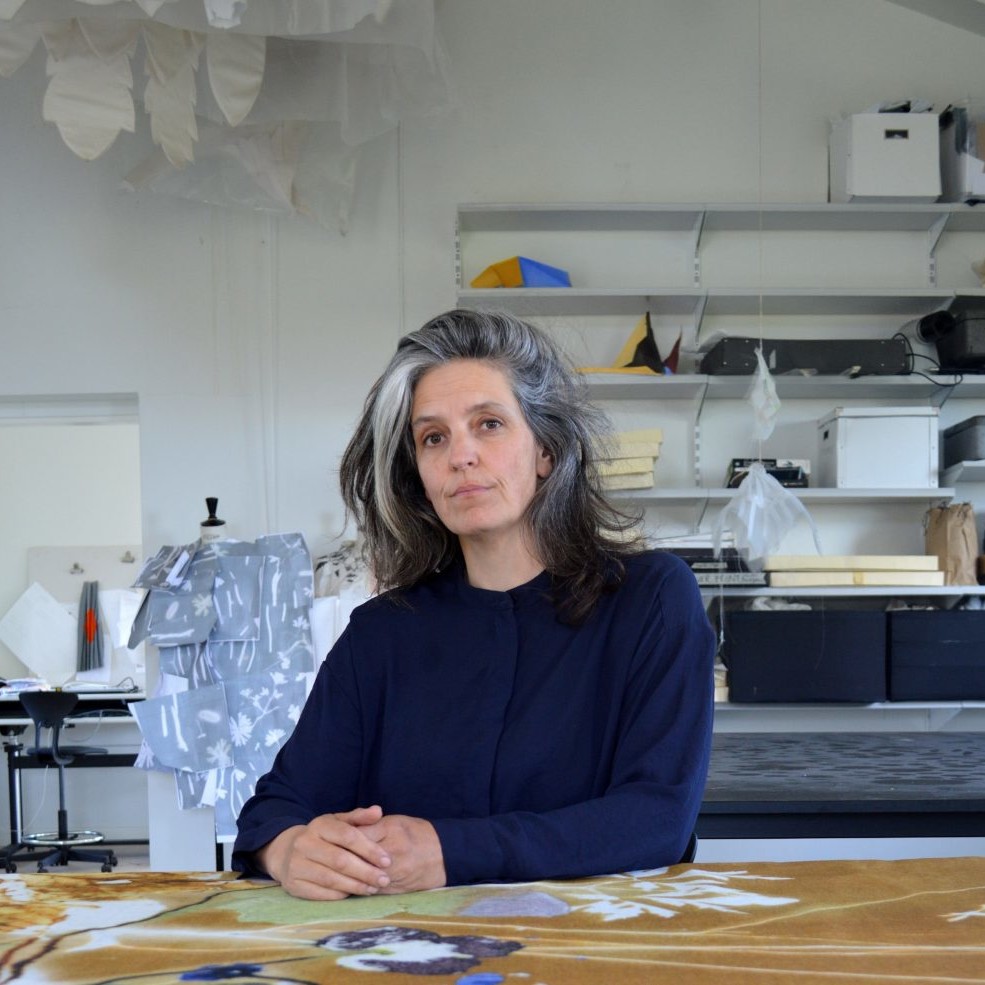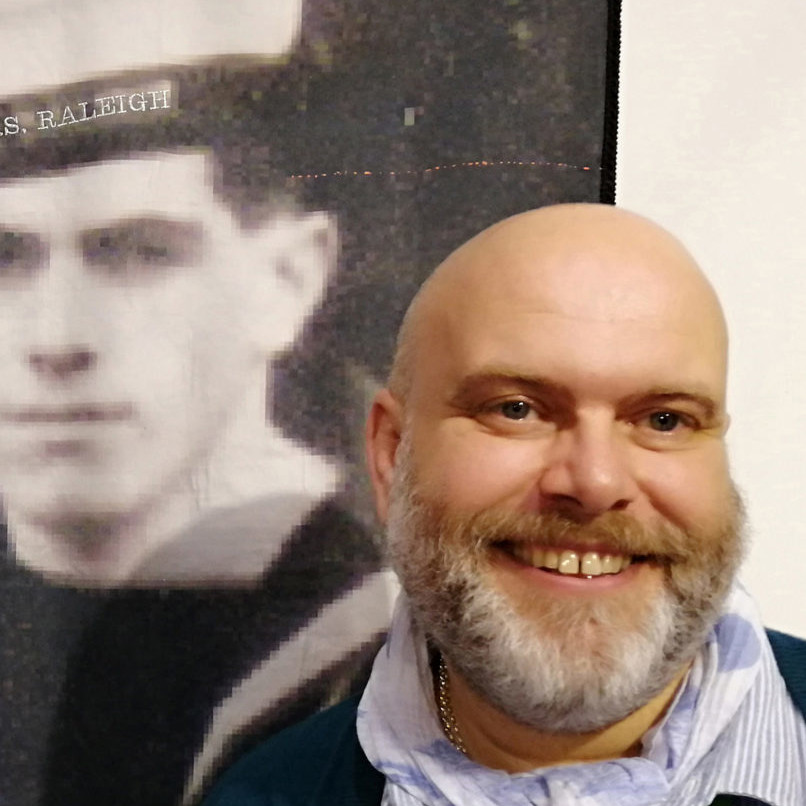Susan Howe Founder of POSHU
How did you first become involved with POSHU?
I first went to Africa in 2008 to live with my husband and children. Our neighbour was a doctor working in a village. He asked me to set up English class for older illiterate women who were caring for family members affected by AIDS. I found the women really appreciated the chance to learn. Then I was asked to set up these grassroots literacy classes in another 6 communities. That’s when I established POSHU. We employ local women to teach in their own language. We also distribute vegetable seed, encourage sports, and guide the women in setting up POSHU Savings Groups.
What does the word POSHU mean?
POSHU means Project of Self Help Uganda. POSHO is their staple food, like mashed potato is to us, so I wanted a simple name that reflects the grassroots nature of the project.
How many villages are now being helped?
In 2019 we operate in 14 rural and remote villages in north and east Uganda. Mostly we stay for 5 years, then move on. By that time the women can manage by themselves. Since 2009 POSHU Classes have taught women in 28 villages, employing over 100 part-time teachers!
How can others help with this project?
You can purchase our POSHU paper bead necklaces from Mildura’s Art Vault. Or you can buy POSHU cloth bags from LiveFast Café at Halls Gap in The Grampians.
Become a Friend of POSHU and help with fund-raising, or decide if you’d like to make a regular monthly contribution. POSHU provides Tax Receipts for donations in Australia, and you can receive our POSHU Newsletter. We really appreciate our donors who make this project possible.
Our bank details are: POSHU Aust Inc
BSB 083-764
Account 20-141-2490
Who do you specialize in these three aspects?
English
English is the national language of Uganda, yet few people in rural areas are able to speak English. If they know even basic English, it opens opportunities for them to gain employment or enrol in further study. Village leaders also attend our classes because they want to represent their people at District meetings, they tell me they need to understand documents concerning their land and water rights.
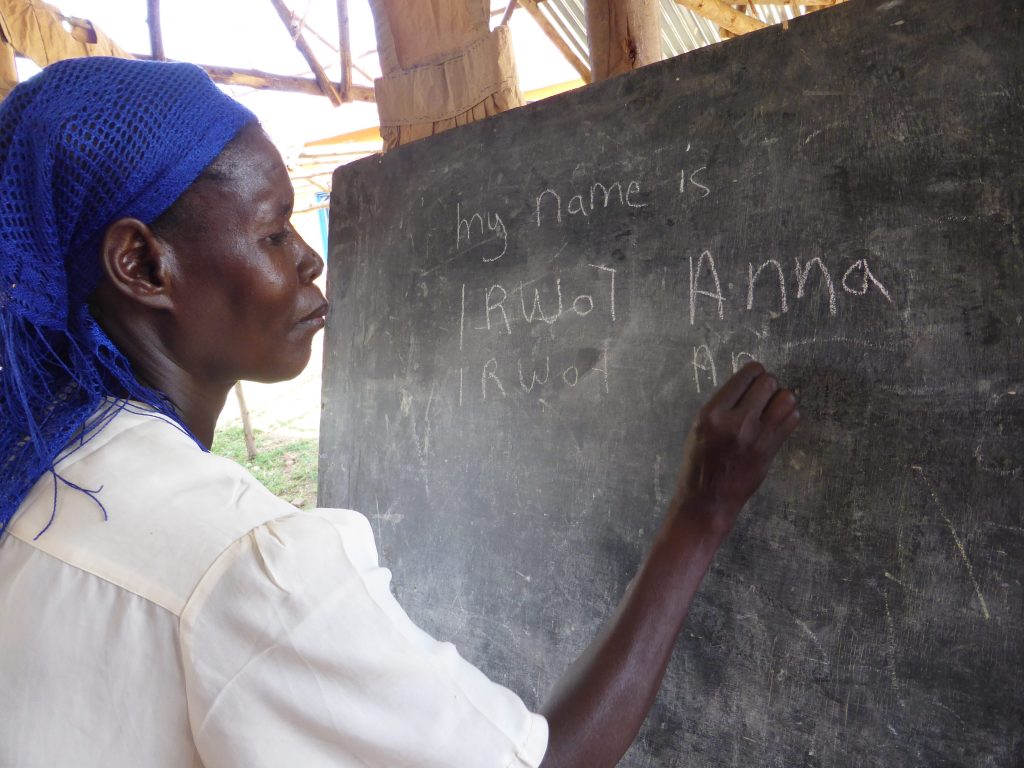
Sewing
Sewing is an income generating skill, but it’s also just a wonderful, creative activity for the hundreds of women and girls who attend our POSHU Sewing Classes. They love to meet together and work on their individual projects, whether it’s making clothes for their children, or a special dress for themselves. “We fill our space now when we walk, we hold our heads high! We know we look smart now,” they tell me. Quite something for women who have known only hardship and drudgery, who only had one dress till now. And they value the friendships they make through POSHU with women from surrounding villages.
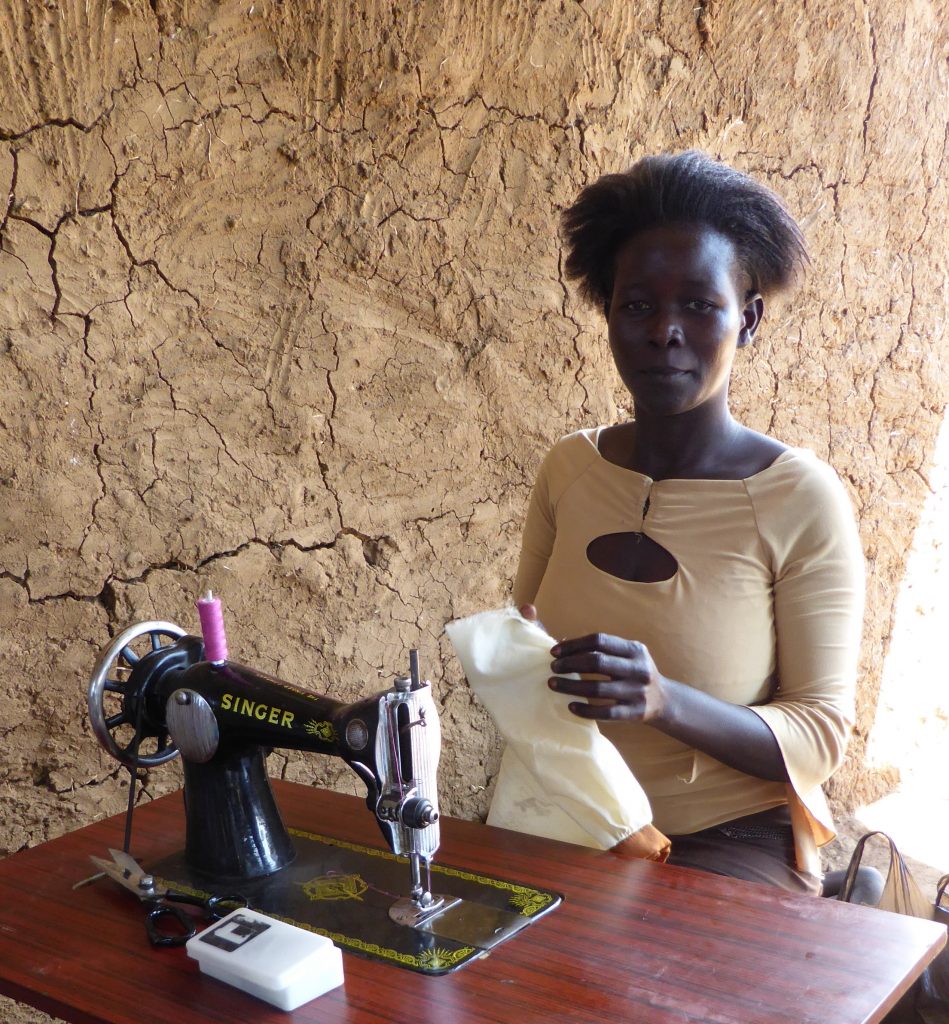
Maths
Maths is important for women subsistence farmers when they go to sell their surplus crops. If they don’t understand how the market works, if they don’t understand basic Math, then they just accept the small amount customers decide to pay them. POSHU teaches basic Math and financial literacy. The women tell me their income has improved because of this training. The next step is helping them to set up POSHU Savings Groups, enabling the women to set up small businesses. They also use their savings to pay school fees for their children, or to buy medicine.
Can you help us put this area on a map?
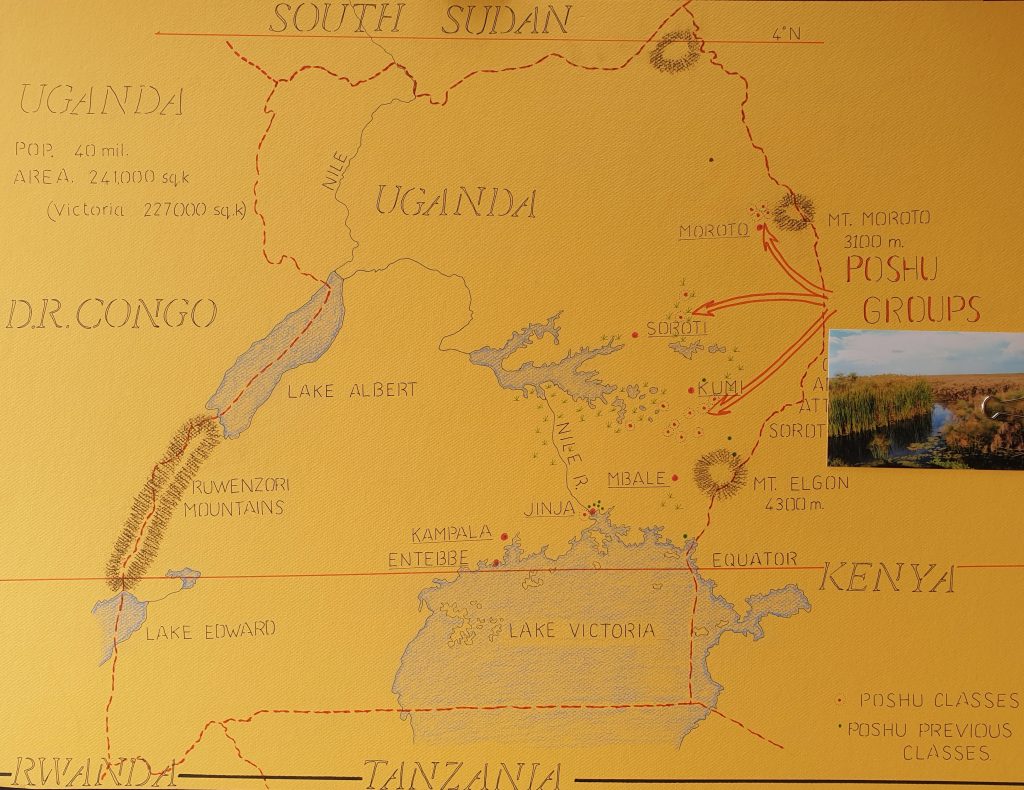
Give us 3 stories that tell how important POSHU has been to these three women.
- Hellen has been our POSHU Sewing teacher in her village since 2010. She is highly respected for her commitment to her many students, and her attention to detail. Yet when we first met, she was almost destitute. The daily struggle against poverty proved too much for her husband, and he left to find work. Their three young children had only rags to wear, and there was no money for food, let alone school fees or medicine. Hellen laughed when we offered her a job as POSHU Sewing Teacher. It seemed so impossible. She had some training in tailoring, but no sewing machine. The other POSHU Teachers welcomed her, they became her friends. They saw in her what she couldn’t see in herself. Now they are a strong team. They’ve trained 200 teenage girls to sew! They also hold free classes twice a year for the women tailors who work at the Trading Centre, teaching them to sew the latest fashions and improving their skills. Hellen’s husband has returned and now they have two incomes to support their family.
- Jen has been our POSHU English teacher since she was 19 years old. She lived with her parents in their hut on the farm, so was able to save her POSHU earnings. After a year, she bought two goats which she raised up and sold. Then she bought two young bulls which she raised and sold at profit. Then she bought some land!! Every year she grows millet on her land and earns a good income! She has a plan for her future.
- Betty was almost destitute when we asked her to be a POSHU English Teacher in her village. She was overjoyed and cried. Life was difficult for her with a disability meaning she couldn’t dig in the fields. After 5 years of teaching with POSHU, she left last year to work in a shop in the town. Perfect for her!
- Our POSHU Teachers grow in confidence. Each year, some of them leave to attend full time Teacher’s College, with the support of their families and their community. Their goal is to become Primary School teachers!
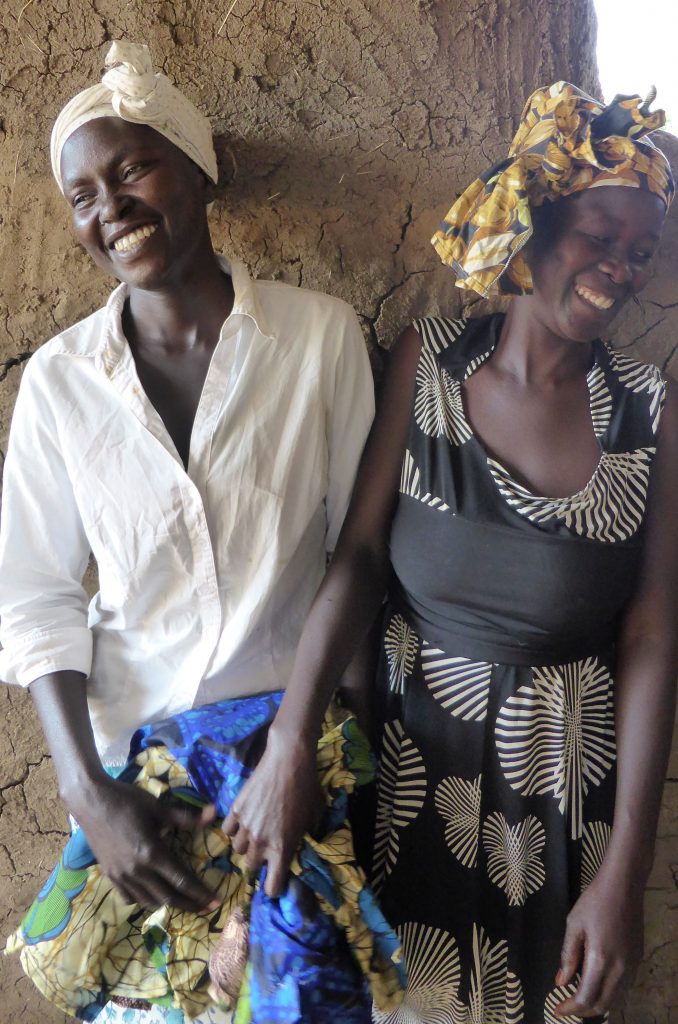
Happy Teachers
Discuss the importance of women helping women.
It’s so important for women to help other women. In the village context, there is already enough knowledge between them all to find their way out of poverty. They don’t need me, or anyone else telling them what to do. What they need is the opportunity to talk and to learn from each other. Almost every village now has at least one woman who is literate. POSHU provides a box of books, pens, chalk, black board. Many of our POSHU teachers are born leaders. We pay them to work in their own village, guiding 25 women and girls towards basic literacy. We try to say “Yes” to their ideas for developing further. Women are inspired by seeing what others are achieving for themselves, and importantly, they gain strength by working together and discussing everything as a group. Everyone has a role to play.
How are the women adding to POSHU themselves?
Each village is different, facing different challenges. And yet poverty has a familiarity to them all. Small changes can make a difference, everyone’s contribution counts. POSHU is valued by the women, and by their communities because we work lightly with them, we don’t tell them what to do. They have the freedom to develop their own ideas, to experiment with what works and what doesn’t. Every woman deserves this right.
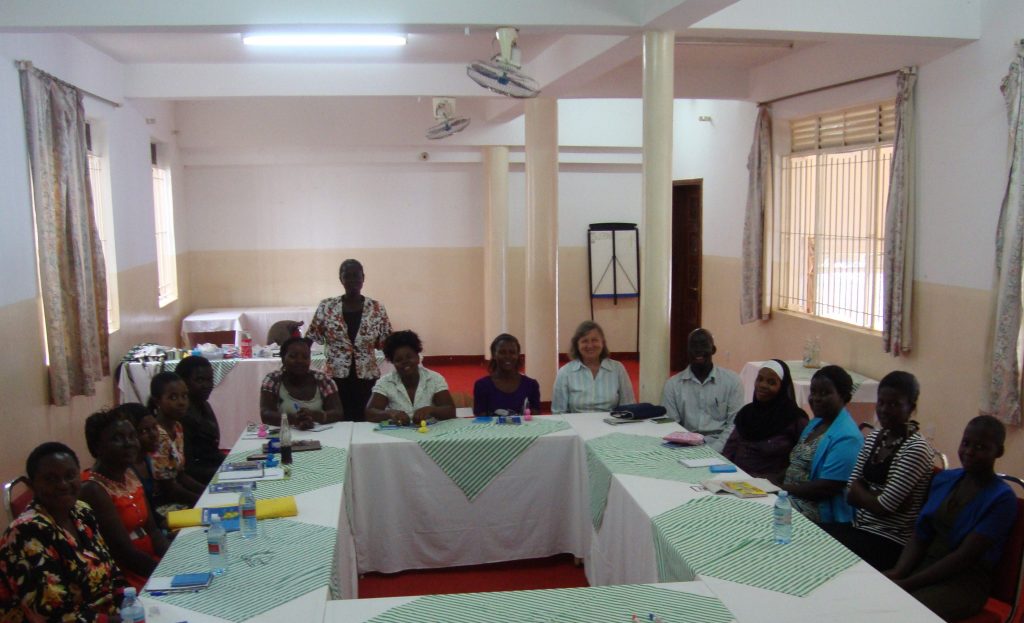
What are the plans for POSHU in 2020?
POSHU works with the whole village, because women make sure everyone is included. In 2020 we plan to conduct training for young men in basic manufacturing skills. We have land in eastern Uganda where we’re building a shed that will be our POSHU Enterprise Centre. And we’re supporting a young woman to attend Basic Computer Training and Office Management. She will be an asset to our Enterprise Centre.
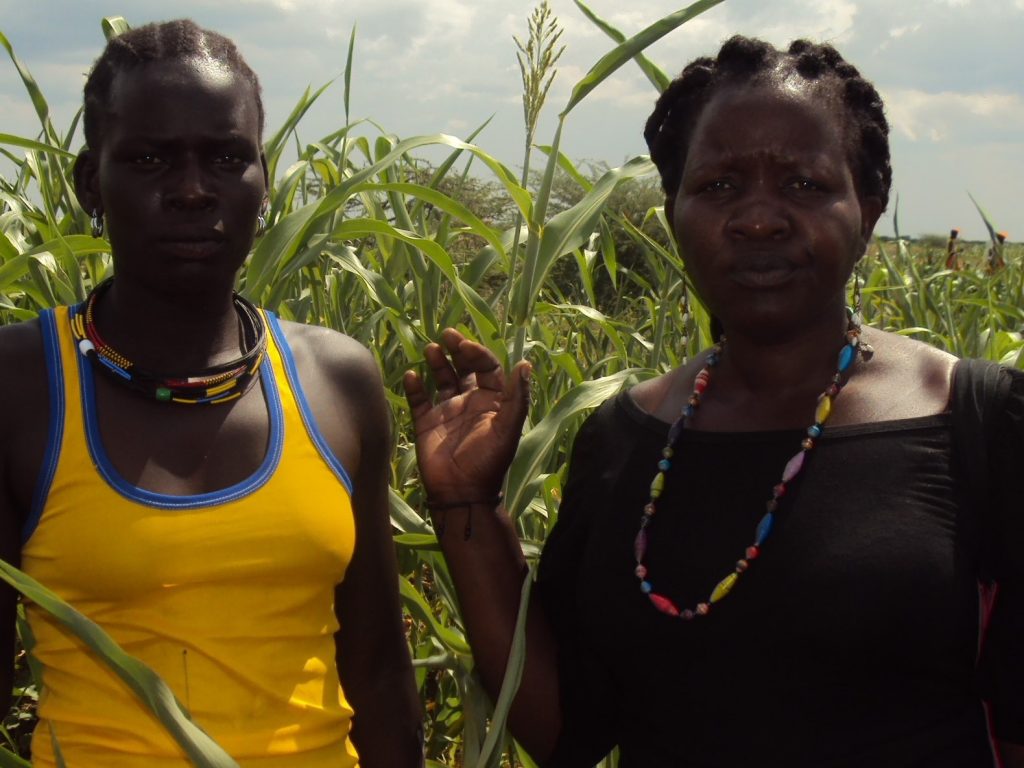
Contact:
Susan Howe
Email: susan.h.howe@hotmail.com
Our bank details are: POSHU Aust Inc
BSB 083-764
Account 20-141-2490
Deborah Blakeley, Melbourne, Australia
Interview by Deborah Blakeley, December 2019
Think a colleague or friend could benefit from this interview?
Knowledge is one of the biggest assets in any business. So why not forward this on to your friends and colleagues so they too can start taking advantage of the insightful information the artist has given?
Other artists you may be interested in:

